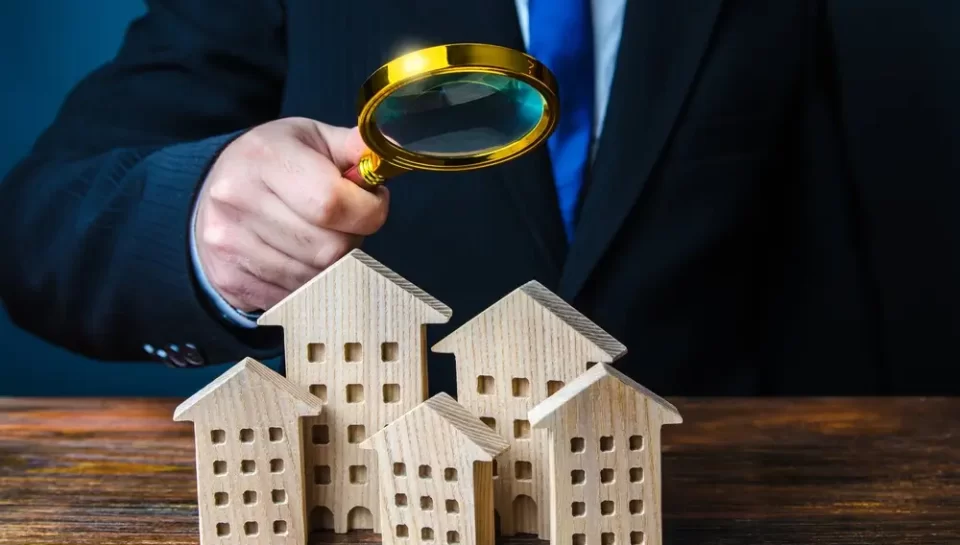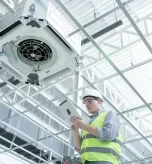When buying or selling a home, the home inspection can be a turning point. It’s where small issues can become big red flags. In some cases, deals fall through simply because of poor maintenance or overlooked problems. So, what fails a home inspection? More importantly, how can you avoid it?
This guide will walk you through the top reasons home inspections fail and what you can do to fix them, whether you’re a seller trying to prep your home or a buyer wanting to know what to expect.
What Does a Home Inspection Involve?
Before diving into the reasons homes fail inspection, it’s essential to understand what does a home inspection covers. A home inspection is a professional assessment of a property’s condition. A certified inspector evaluates structural elements, electrical systems, plumbing, roofing, HVAC, foundation, and more.
This isn’t about passing or failing like a test, but if a property has serious problems, buyers may back out or renegotiate. In that sense, yes, you can fail a home inspection.
Read more: How to Choose the Best Home Inspection Service?
Common Things That Fail a Home Inspection
1. Roof Problems
Roof damage is one of the most common issues. Cracked shingles, sagging sections, leaks, or poor flashing around chimneys and vents are red flags. A bad roof not only costs thousands to fix but can also lead to deeper water damage.
2. Electrical Hazards
Outdated wiring, exposed wires, overloaded circuits, or a lack of Ground Fault Circuit Interrupters (GFCIs) in key areas can lead to a bad house inspection. Faulty electrical systems are safety risks and often require licensed electricians to correct them.
3. Plumbing Issues
Leaky pipes, poor water pressure, and old water heaters are high on the list of what fails a home inspection. Inspectors look for signs of water damage, corrosion, and improper drainage.
4. HVAC System Problems
A non-functional heater or air conditioner is a deal breaker, especially in extreme climates. Dirty filters, poor airflow, or an aging HVAC unit can all cause a house to fail inspection.
5. Foundation and Structural Defects
Cracks in walls, sloping floors, sticking doors, or visible foundation cracks signal potential structural problems. These issues are serious and will almost always result in a failed house inspection.
6. Moisture and Mold
Water damage and mold growth are red flags in any home inspection. Moisture in basements, bathrooms, or attics can indicate leaks or ventilation issues. Mold not only affects the property’s value but can pose health risks.
7. Pest Infestation
Termites, rodents, or carpenter ants can wreak havoc on a home’s structural integrity. Even signs of past infestations—like droppings or damaged wood—can lead to a bad inspection on a house.
8. Exterior Drainage Problems
Improper grading or poor gutter systems cause water to pool near the foundation. Over time, this can lead to structural damage, basement leaks, or mold growth.
9. Poor Maintenance
Peeling paint, dirty filters, broken fixtures, or general neglect create a poor impression. While these may be minor, they add up and can be the tipping point in a buyer’s decision-making.
What Happens If a Home Inspection Fails?
Technically, a home inspection doesn’t “fail,” but buyers can walk away or demand repairs if the issues are significant. So when you hear “house fails inspection” or “what happens if a house fails inspection,” it means:
- The buyer may renegotiate the price.
- The seller might be asked to fix the issues.
- The deal could fall through entirely.
Understanding what happens if a home inspection fails is key to navigating this stage of the transaction with confidence.
How to Pass a Home Inspection: Tips for Sellers?
If you’re preparing to list your property, here are some tricks to pass a home inspection and avoid unpleasant surprises.
1. Schedule a Pre-Inspection
Hiring your own inspector before listing gives you time to fix problems ahead of the buyer’s inspection.
2. Handle Repairs Early
Fix leaky faucets, replace broken window panes, clean HVAC filters, and repair minor electrical issues. Don’t give the buyer a laundry list of problems to use in negotiations.
Read more: Affordable Home Inspection: Quality Assurance on Budget
3. Improve Curb Appeal and Cleanliness
While cosmetic issues don’t directly cause a failed inspection, they create a better overall impression and show the home is cared for.
4. Ensure Access to All Areas
Clear access to the attic, basement, electrical panel, and HVAC unit. Inspectors need to reach everything to do their job.
5. Gather Maintenance Records
Showing that the roof, HVAC, or plumbing has been recently serviced can help ease buyer concerns.
How to Fix Home Inspection Fails?
If your house inspection fails, don’t panic. Here’s how to turn it around:
- Review the Report in Detail – Understand which items are serious (health/safety/structural) and which are cosmetic or minor.
- Consult Contractors – Get quotes to understand repair costs. This helps in negotiation.
- Negotiate with Buyers – Offer to repair key issues or provide a credit at closing.
- Document All Fixes – Save all receipts and provide proof of repairs to the buyer.
- Consider a Reinspection – If major issues are resolved, it helps build buyer confidence.
FAQs
1. What are the top things that fail a home inspection?
Common issues include roof damage, electrical problems, plumbing leaks, HVAC failures, foundation cracks, mold, and pests.
2. Can you fail a home inspection completely?
Not officially, but if serious issues are found, buyers may cancel or renegotiate the contract. It’s often referred to as a failed house inspection in real estate.
3. What happens if you fail a house inspection as a seller?
You may be asked to fix the issues, offer credits, or renegotiate the price. If an agreement isn’t reached, the buyer may back out.
4. How to pass a house inspection quickly?
Make necessary repairs, ensure cleanliness, check major systems (roof, HVAC, plumbing), and consider a pre-listing inspection.
5. What should I fix before a home inspection?
Address any known issues—roof leaks, plumbing drips, faulty outlets, HVAC maintenance—and clear up signs of water damage or mold.
Conclusion
Home inspections are a critical part of any real estate deal, and they don’t have to be intimidating. By understanding the things that fail a home inspection and taking proactive steps, you can make the process smoother and avoid surprises.
If you’re buying or selling a home in Riverside, California, the team at Key Property Inspection Group is here to help. We provide detailed, honest, and professional home inspections so that you can move forward with clarity and confidence.





